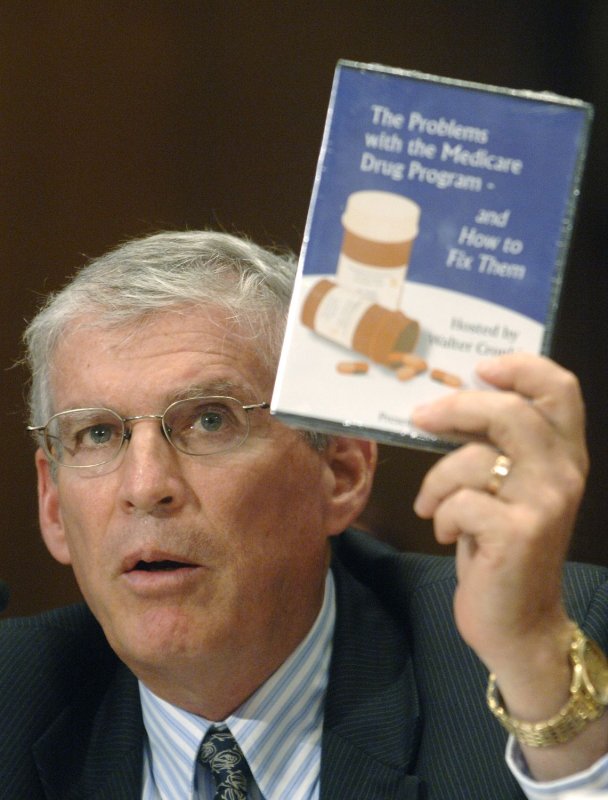Executive Director of Families USA Ron Pollack holds up a DVD about Medicare Part D and prescriptions options as he testifies before a Senate Democratic Policy Committee hearing on Medicare Part D, in Washington.
An estimated more than 2 million U.S. seniors who would qualify for a subsidy -- free money -- under Medicare Part D, failed to apply. (UPI Photo/Kevin Dietsch). |
License Photo
BOSTON, May 9 (UPI) -- Low cognition hinders U.S. seniors' Medicare choices and it calls into question potential effectiveness of a Medicare voucher system, researchers say.
Senior author Michael McWilliams of the Harvard Medical School and Brigham and Women's Hospital said the Low Income Subsidy for Medicare Part D provides prescription drug coverage essentially free for low-income U.S. adults, but many don't apply.
For those who are eligible, there is no rational reason not to choose something you want when it is free, McWilliams said.
McWilliams and his team analyzed data from the nationally representative Health and Retirement Study on seniors who were likely eligible for the Low Income Subsidy. They said seniors with lower cognition and lower basic math abilities were less likely to enroll in Medicare Part D and less likely to apply for the subsidy if they did enroll in Part D.
The study, published in the Internal Medicine, said the study raises questions about the extent to which consumer choices can be relied upon to reward value and drive competition in Medicare in general.
"We examined the role of seniors' cognitive abilities in explaining this puzzle," McWilliams said in a statement. "If impaired abilities to access and process information are a root cause, simply providing seniors with more information is unlikely to help them make better choices."
Those who qualify for Medicaid and are also in Medicare are automatically enrolled and get the subsidy without any action on their part. Other low-income adults must apply for the benefit. The Kaiser Family Foundation estimated more than 2 million people who would qualify for a benefit failed to apply.















